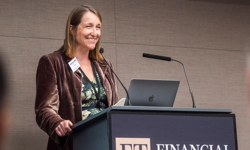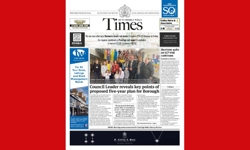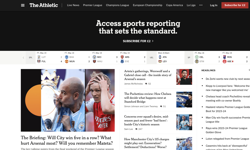
As reported by Ian Murray on the Society of Editors website:
The move comes in response to the Australian government’s plans to force Facebook to pay for news content under a proposed Media Bargaining law.
The announcement came as Google announced it has agreed a deal with News Corp – owners of The Sun and Times newspapers in the UK – to pay for content.
Announcing the ban, Facebook’s managing director for Australia and New Zealand William Easton said: “The proposed law fundamentally misunderstands the relationship between our platform and publishers who use it to share news content.
“It has left us facing a stark choice: attempt to comply with a law that ignores the realities of this relationship, or stop allowing news content on our services in Australia. With a heavy heart, we are choosing the latter.”
For Australian publishers, Facebook’s restrictions will prevent them from sharing or posting content on their pages.
The changes mean the social media company will not be launching Facebook News in Australia. Facebook has already launched Facebook News in the UK and US which pays for content used by the digital giant.
Mr Easton added: “We hope that in the future the Australian government will recognise the value we already provide and work with us to strengthen, rather than limit, our partnerships with publishers.”
Australian prime minister, Scott Morrison, used Facebook to argue the platform’s show of strength would “confirm the concerns that an increasing number of countries are expressing about the behaviour of BigTech companies who think they are bigger than governments and that the rules should not apply to them”.
“Facebook’s actions to unfriend Australia today, cutting off essential information services on health and emergency services, were as arrogant as they were disappointing.”
He added: “They may be changing the world, but that doesn’t mean they run it.”
Australian Treasurer, Josh Frydenberg, condemned Facebook’s decision to block Australians’ access to government pages in the middle of a pandemic – including on bushfires, mental health, emergency services and even the Bureau of Meteorology – saying they were “completely unrelated” to the proposed news media bargaining code.
Ian Murray, executive director of the Society of Editors, said: “This is really unfortunate, and it is always the public, not the media, that ultimately loses out when the delivery of news is blocked in this way.
“The lesson to be learnt is that it is best to strive to reach amicable agreements.
“Here in the UK, we have seen Facebook and Google recently reach agreements with UK publishers and news organisations to pay for content under licence.
“No doubt there will be further negotiations on how news providers such as publishers and broadcasters can be properly compensated for their work when it is reproduced on the digital platforms, but while this evolves it is essential the public are not denied access to news and information.”
Facebook’s statement in full:
“The proposed law fundamentally misunderstands the relationship between our platform and publishers who use it to share news content. It has left us facing a stark choice: attempt to comply with a law that ignores the realities of this relationship, or stop allowing news content on our services in Australia. With a heavy heart, we are choosing the latter.
“This discussion has focused on US technology companies and how they benefit from news content on their services. We understand many will ask why the platforms may respond differently. The answer is because our platforms have fundamentally different relationships with news. Google Search is inextricably intertwined with news and publishers do not voluntarily provide their content. On the other hand, publishers willingly choose to post news on Facebook, as it allows them to sell more subscriptions, grow their audiences and increase advertising revenue.
“In fact, and as we have made clear to the Australian government for many months, the value exchange between Facebook and publishers runs in favor of the publishers — which is the reverse of what the legislation would require the arbitrator to assume. Last year Facebook generated approximately 5.1 billion free referrals to Australian publishers worth an estimated AU$407 million.
“For Facebook, the business gain from news is minimal. News makes up less than 4% of the content people see in their News Feed. Journalism is important to a democratic society, which is why we build dedicated, free tools to support news organisations around the world in innovating their content for online audiences.
“Over the last three years we’ve worked with the Australian Government to find a solution that recognizes the realities of how our services work. We’ve long worked toward rules that would encourage innovation and collaboration between digital platforms and news organisations. Unfortunately this legislation does not do that. Instead it seeks to penalise Facebook for content it didn’t take or ask for.
“We were prepared to launch Facebook News in Australia and significantly increase our investments with local publishers, however, we were only prepared to do this with the right rules in place. This legislation sets a precedent where the government decides who enters into these news content agreements, and ultimately, how much the party that already receives value from the free service gets paid. We will now prioritise investments to other countries, as part of our plans to invest in new licensing news programs and experiences.
“Others have also raised concern. Independent experts and analysts around the world have consistently outlined problems with the proposed legislation. While the government has made some changes, the proposed law fundamentally fails to understand how our services work.
“Unfortunately, this means people and news organisations in Australia are now restricted from posting news links and sharing or viewing Australian and international news content on Facebook. Globally, posting and sharing news links from Australian publishers is also restricted. To do this, we are using a combination of technologies to restrict news content and we will have processes to review any content that was inadvertently removed.
For Australian publishers this means:
- They are restricted from sharing or posting any content on Facebook Pages
- Admins will still be able to access other features from their Facebook Page, including Page insights and Creator Studio
- We will continue to provide access to all other standard Facebook services, including data tools and CrowdTangle
For international publishers this means:
- They can continue to publish news content on Facebook, but links and posts can’t be viewed or shared by Australian audiences
For our Australian community this means:
- They cannot view or share Australian or international news content on Facebook or content from Australian and international news Pages
For our international community this means:
- They cannot view or share Australian news content on Facebook or content from Australian news Pages
“The changes affecting news content will not otherwise change Facebook’s products and services in Australia. We want to assure the millions of Australians using Facebook to connect with friends and family, grow their businesses and join Groups to help support their local communities, that these services will not change.
“We recognise it’s important to connect people to authoritative information and we will continue to promote dedicated information hubs like the COVID-19 Information Centre, that connects Australians with relevant health information. Our commitment to remove harmful misinformation and provide access to credible and timely information will not change. We remain committed to our third-party fact-checking program with Agence France-Presse and Australian Associated Press and will continue to invest to support their important work.
“Our global commitment to invest in quality news also has not changed. We recognise that news provides a vitally important role in society and democracy, which is why we recently expanded Facebook News to hundreds of publications in the UK.
“We hope that in the future the Australian government will recognise the value we already provide and work with us to strengthen, rather than limit, our partnerships with publishers.”
Keep up-to-date with publishing news: sign up here for InPubWeekly, our free weekly e-newsletter.












